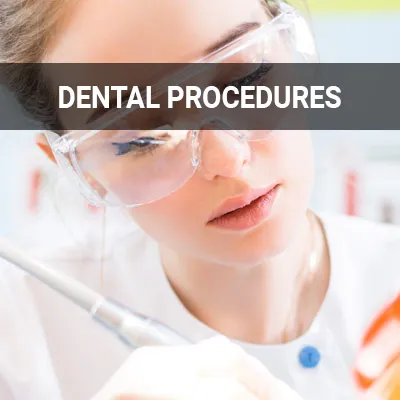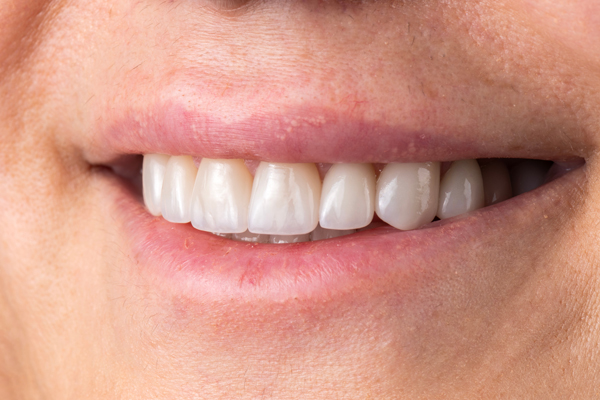Root Scaling and Planing Charlotte, NC
Patients with gum disease can benefit from root scaling and planing. This treatment is a key part of restoring healthy gums and teeth. Root scaling and planing treatments can combat the harmful effects of gum disease and keep your mouth healthy.
Root scaling and root planing treatments are available at Randolph Dental Care in Charlotte and the surrounding area. Our team can help improve your oral health. Call us at (704) 366-3622 to learn more about our services or schedule an appointment.
An Overview of Root Scaling and Planing
Root scaling is a periodontal treatment that deep cleans the gums. This treatment is more extensive than the routine cleaning during a regular dental check-up. We will remove all plaque, bacterial toxins, and tartar deposits from the teeth and root surfaces during the procedure. A dental scaler or ultrasonic instrument can also assist in clearing the bacterial buildup.
For even deeper cleaning, patients can also have a root planing treatment. During root planing, we will clean under the gum line to remove plaque and tartar. The root surface of the gums is smoothed and treated to keep gum disease from progressing. These non-surgical procedures aim to remove bacteria from the gum and root with patients with deep periodontal pockets.
” These non-surgical procedures aim to remove bacteria from the gum and root with patients with deep periodontal pockets.”
When To Receive Root Scaling and Planing
We recommend root scaling and root planing to combat chronic periodontal disease, also known as gum disease. Patients with receding gums can also benefit from this treatment. During a routine dental examination, we will assess the patient's gum line and periodontal pockets. Deep pockets may indicate signs of periodontal disease and necessitate root scaling or planing.
Without root scaling or root planing treatment, people with periodontal disease can suffer additional oral and overall health problems. Eventually, the bacteria from diseased gums can lead to receding gums, tooth loss, bone loss, or loose teeth. Root scaling and planing can help repair some of the damage and prevent further gum damage. Additional treatments may be necessary in cases where the periodontal pockets have become deeper.
“Without root scaling or root planing treatment, people with periodontal disease can suffer additional oral and overall health problems.”
Preparing for Root Scaling and Planing
Dental providers may divide root scaling and planing into two appointments. During the first appointment, the dentist cleans one side of the patient's mouth. They might save the other side of the mouth for the patient's second visit. Splitting the procedures up may help reduce patient discomfort. Before starting treatment, the dental team provides a numbing medication. Next, they remove plaque and tartar along the base of the teeth. The dental provider works between teeth and below the gum line, too. They may use a manual tool like a metal scraper, or they may opt for an ultrasonic instrument.
The dental provider works in vertical, horizontal, and circular motions to remove debris along each side of the tooth. The provider also performs root planing to smooth the surface of the tooth. Planing can prevent gum disease relapses. By smoothing the teeth, the provider eliminates places where bacteria and plaque can hide. Finally, the provider flushes away debris and bacteria. They may provide an antiseptic rinse or antibiotics to help the patient's mouth heal. The dental team also uses gentle pressure to help gums reattach to the teeth.
“By smoothing the teeth, the provider eliminates places where bacteria and plaque can hide.”
Check out what others are saying about our dental services on Yelp: Root Scaling and Planing in Charlotte, NC
Benefits and Drawbacks of Root Scaling and Planing
Root scaling and planing remove hidden pockets of infection below the gumline. This procedure also deep cleans to eliminate plaque and tartar. Most patients respond well to root scaling and planing. This procedure can treat even stubborn cases of gum disease. It may also prevent future dental concerns like decay or abscess.
However, like any dental procedure, root scaling and planing carry some risk. Occasionally, patients may experience oral bleeding or irritation. Patients may also have an allergic reaction to the materials or medications used during treatment. Rest assured that serious side effects are rare. Our dental team takes every precaution for our patient's safety.
Sometimes, a single root scaling and planing procedure may not resolve the underlying problem. Patients may need further treatments, including oral medication. Patients with chronic gum disease may also need repeated procedures. Our dental team can explain what to do if gum disease persists after root scaling and planing.
“Most patients respond well to root scaling and planing.”
Questions Answered on This Page
Q. What are root scaling and root planing?
Q. When are root scaling and root planing necessary?
Q. How should I prepare for root scaling and planing?
Q. What are the benefits and drawbacks of root scaling?
Q. What aftercare should occur after treatment?
People Also Ask
Q. What are the symptoms of gum recession?
Q. Am I at high risk for developing oral cancer?
Q. What is the difference between endodontists and dentists?
Q. What is the difference between a dental cleaning and a deep cleaning?
Q. Are pain and tenderness when touching the teeth or chewing a sign of a problem?
Procedure Aftercare
After root scaling and planing, patients may experience:
- Gum bleeding
- Irritated gums
- Tooth sensitivity
- Soreness or aching
These side effects usually disappear within a few days. Patients can speed their recovery by following the team's aftercare instructions. During recovery, patients may need to avoid certain foods. Patients may also receive instructions about their at-home oral care. Thorough brushing and flossing help prevent gum disease from returning. However, patients may need to delay flossing a few days to allow the gums time to heal. The dental team can provide more information about when patients can resume their regular activities.
Many patients with periodontal disease need ongoing care. They may benefit from annual scaling and planing procedures. These procedures can overlap with the patient's regular exams and dental cleanings. Our team can help patients develop a plan for their future dental care.
“Many patients with periodontal disease need ongoing care.”
Frequently Asked Questions
Q. Is root scaling and planing painful?
A. Dental providers use numbing medication to prevent patients from feeling discomfort during treatment. Afterward, patients may experience sore or tender gums. However, these side effects usually disappear within a few days.
Q. How long will it take for my gums to recover?
A. Most patients make a full recovery within 1-2 weeks. Keep in mind that some patients may need frequent scaling and planing. Annual or biannual procedures can prevent gum disease from returning. Our team can determine whether you need ongoing treatment.
Q. How long does the procedure last?
A. Root scaling and planing usually take 1-2 hours. The dental provider may perform the treatment in one visit, or they may split the procedure into two stages. Our team can determine the right treatment schedule for you.
Q. What are the risks of root scaling and planing?
A. Most patients are eligible for root scaling and planing procedures. However, this treatment may not be right for patients with bleeding disorders or compromised immune systems. Patients with severe tooth decay or oral infections may benefit from a different treatment. Our team can determine whether you are a candidate for root scaling and planing.
Q. How can I know if I need this procedure?
A. Root scaling and planing can treat an advanced form of gum disease known as periodontitis. Periodontitis symptoms may include:
- Swollen gums
- Red or purplish gums
- Gum bleeding
- Bad breath
- Visible pus along the gumline
Untreated periodontitis can result in tooth loss, receding gums, and widespread infection. Researchers have also found that patients with periodontitis are at a higher risk for heart disease and dementia. Treatment helps patients resolve gum disease and other issues that may occur from gum disease.
Periodontic Terminology
Call Us Today
If you have gum disease, root scaling and planing can help reverse this issue. Our team at Randolph Dental Care can help. Call us today at 704-366-3622 to learn more about our services or schedule an appointment.
Helpful Related Links
- American Dental Association (ADA). Glossary of Dental Clinical Terms. 2024
- American Academy of Cosmetic Dentistry® (AACD). Home Page. 2024
- WebMD. WebMD’s Oral Care Guide. 2024
About our business and website security
- Randolph Dental Care was established in 2016.
- We accept the following payment methods: American Express, Cash, Check, Discover, MasterCard, and Visa
- We serve patients from the following counties: Mecklenburg County
- We serve patients from the following cities: Charlotte, Matthews, Huntersville, Fort Mill, and Pineville Mint Hill
- Norton Safe Web. View Details
- Trend Micro Site Safety Center. View Details
Back to top of Root Scaling and Planing











